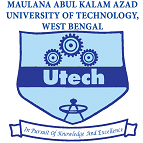 |
|
Prerequisite:
Bachelor Degree (B.Sc/B.E/B.Tech) or Diploma in Electronics, Instrumentation, Electrical, Computer Science, Information Technology, or allied streams.
Course Objective:
· Conceptualise the IoT landscape and IoT environment
· Expose the students to the two major IoT technical platforms: Arduino and Raspberry Pi
· Provide practice in the IoT environments by conducting a wide range of experiments
Course Outcome : At the end of the course students will be able to
1: Analyse a business situation for its suitability for an IoT solution
2: Design and implement IoT solutions using the Arduino platform
3: Design and implement IoT solutions using the Raspberry Pi platform
|
# |
Topic |
Theory |
Lab |
|
1. |
Introduction to IoT |
2 |
|
|
2. |
IoT Environment |
2 |
|
|
3. |
Refresher on C Language |
4 |
4 |
|
4. |
Refresher on Basic Electronics |
4 |
4 |
|
5. |
The Arduino Platform |
2 |
2 |
|
6. |
Arduino Experiments |
2 |
6 |
|
7. |
Refresher on Python Langauge |
4 |
4 |
|
8. |
The Raspberry Pi Platform |
2 |
2 |
|
9. |
Raspberry Pi Experiments |
2 |
6 |
|
10. |
IoT Security |
2 |
2 |
|
11. |
Industry Project |
4 |
30 |
|
TOTAL |
30 |
60 |
Course Content:
Introduction to IoT [2Theory]:
What is IoT? – Evolution of internet – IoT case studies – Smart vehicles – smart buildings – health care – agriculture – Web based demo of IoT system
IoT Environment [2Theory]:
Embedded systems – Micro-controllers – Sensors – Controllers – Memory mapped IO – Input – Display – Notifications – Embedded Boards – IoT Architecture – IoT devices – IoT Platforms – Wearable platforms – Embedded platforms – Cloud platforms – Arduino – Raspberry Pi
Refresher on C language [4Theory, 4Laboratory]:
Variables and constants – Data Types – Characters, integers, and floating point numbers – Operators – Expressions – Functions – Loops
Refresher on Basic Electronics [4Theory, 4Laboratory]:
Electrical Circuits – Passive Components – Sensors – Resistive Sensors – Actuators – Analog Actuators – Pulse Width Modulation
The Arduino Platform [2Theory, 2Laboratory]:
The 3 components of the Arduino platform – Arduino board – Arduino IDE – Arduino Shields – Schematics – Direct programming – Installing the Arduino IDE – Adruino tool chain – Cross compilation – Structure of an Arduino program or sketch – the compilation process – Basic Arduino setup
Arduino Experiments [2Theory, 6Laboratory]:
Working with Pins – Input and Output – the use of the setup and loop functions – Using a bread board to wire a circuit – Monitoring Temperature, Humidity, Smoke & Flame – LCD display – Fading LED – RGB & Active Buzzer Circuit Design – Controlling RGB & Active Buzzer – controlling Relay – Making sounds – Building a basic music system – Use of software libraries with an Arduino sketch – Arduino Shields – Ethernet shield – Wifi shield – Servo motors – Using the Servo library to control servo motors
Refresher on Python language [4Theory, 4Laboratory]:
History of Python – Features of Python – Applications of Python – Using the IDLE3 IDE – Statements and comments – Data types and Variables – Operators – Input/output
The Raspberry Pi Platform [2Theory, 2Laboratory]:
Overview – Raspberry Pi board – Raspberry Pi processor – Raspberry Pi Operating System – Raspberry Pi Configuration and setup – Standard network extensions of Raspberry Pi 3 like Ethernet, WiFi, Bluetooth
Raspberry Pi Experiments [2Theory, 6Laboratory]:
GPIO Pins – Protocol Pins – RPi.GPIO library – GPIO Access – Pulse Width Modulation – Blinking LED – GPIO Simulator – Monitoring Temperature, Humidity, Smoke & Flame – RGB & Active Buzzer Circuit Design – Controlling RGB & Active Buzzer – Standard network extensions of Raspberry Pi 3 – Ethernet – WiFi – Bluetooth – Communicating with Cloud (Thingspeak) – Send to and Receive email from GMail – Create a Gmail notification light
IoT Security [2Theory, 2Laboratory]:
Security & privacy implications – Hackable devices – Cyber security methods – Securing the Raspberry Pi
Industry Project [4Theory, 30Laboratory]:
Each student will be required to work on a IoT project relevant to the industry. This will involve performing business requirements analysis, solutions design, and implementation.
Reference Books:
